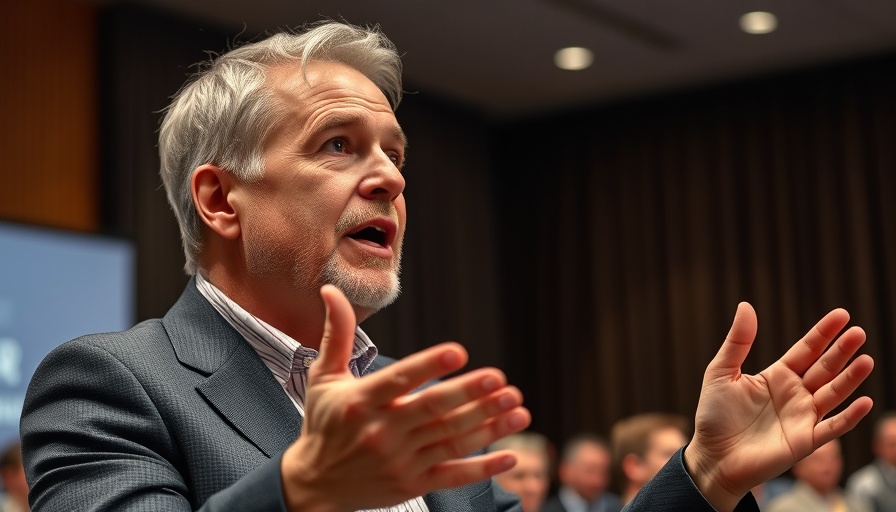
Kennedy's Historic Move to Halt Vaccine Trials
In a decisive action that has sparked intense debate across the healthcare sector, Health and Human Services Secretary Robert F. Kennedy Jr. has placed a 90-day halt on a $453 million COVID-19 vaccine trial. This ambitious project was meant to involve 10,000 participants, aiming to explore new avenues for inoculation. Announced on February 21, this unprecedented move reflects Kennedy's commitment to prioritize both safety and fiscal responsibility in federal biomedical research.
Safety Concerns Take Center Stage
Kennedy's decision to suspend the trial signals an urgent need for thorough scrutiny over vaccine safety protocols, especially in light of prior studies suggesting adverse effects linked to COVID-19 vaccinations. Experts argue that public mistrust in vaccines is on the rise, fueled by reports of potential risks like myocarditis and anaphylaxis that have complicated safe vaccine rollout efforts. This backdrop creates a critical moment for Kennedy as he navigates stakeholder concerns regarding the efficacy and safety of these vaccines.
A Shifting Perspective on Vaccine Development
Parallel to Kennedy’s bold stance, his earlier comments demanding the FDA to rescind the authorization of all COVID vaccines have gained renewed relevance. At a time when vaccine hesitancy is perpetuated by high-profile incidences of vaccine injuries, Kennedy stands at the crossroads of public health policy. This re-evaluation of vaccine safety is compounded by the recent findings of a potential "post-vaccination syndrome" (PVS) noted by Yale University, indicating that patients who have reacted to vaccines exhibit unusual immune responses. Such emerging data necessitates a critical look at current vaccine approval processes.
The Future of Vaccine Research
Looking ahead, Kennedy's actions could usher in a paradigm shift in vaccine development, particularly with regards to oversight and patient consent in clinical trials. As he aligns with Vaxart and other medical experts to ensure that future vaccine technologies are both effective and economical, stakeholders anticipate calls for heightened transparency in research processes and more robust community engagement in health decisions. This could herald broader changes in how vaccines are developed, approved, and deployed nationwide.
Understanding Community Sentiment
The impact of this pause on community sentiments around vaccine safety cannot be overstated. With public figures like Kennedy advocating for strict safety measures, there lingers a sentiment that supporters yearn for more substantial dialogue about the health risks associated with rapid vaccine development. Women, who are often the primary caregivers in families, play a pivotal role in this discussion, as they increasingly seek information about vaccine implications for themselves and their children.
Final Thoughts
As the world grapples with the fallout from the pandemic, Kennedy’s moratorium on a significant vaccine trial encapsulates broader health dialogues about trust, safety, and ethics in medical research. With an eye towards the future, this decision encourages an engaged and informed public discourse on vaccines, underscoring the essential balance between innovation and patient safety.
 Add Row
Add Row  Add
Add 




 Add Row
Add Row  Add
Add 



Write A Comment